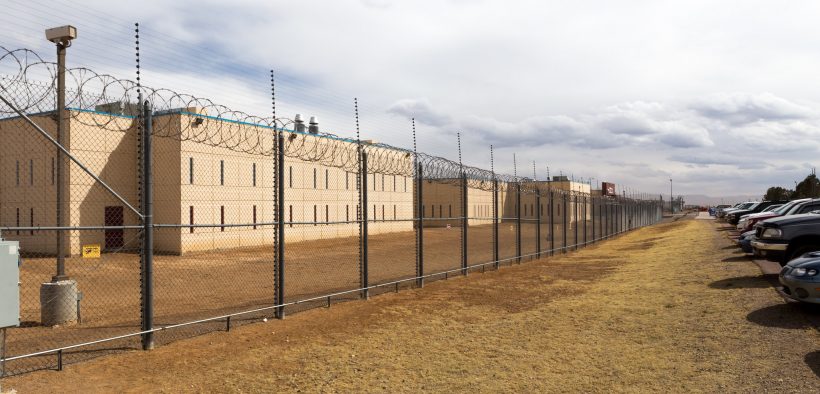As California Bans Private Prisons, Showdown With ICE Looms

“AB 32 is the most progressive and far-reaching bill on immigration detention in this country.”
In a big win for prison reform and immigration advocates, California Governor Gavin Newsom signed into law on Friday a bill banning private, for-profit prisons and federal immigration detention centers from operating in the state of California. But the law, which began as a ban on private prisons and expanded to include federal immigration detention facilities, looks to be heading California into another showdown with the federal government.
What Assembly Bill 32 (AB32) does, effective January 1, 2020, is forbid California from renewing or signing any new contracts with privately-owned, for-profit prison companies. AB32 further gives California until 2028 to completely phase out the use of privately owned prisons.
What is the Impact of AB32 on California’s For-Profit Prison Industry?
Yet, AB32 doesn’t completely shut out the for-profit prison industry as it doesn’t apply to privately owned prisons operated and run by California’s state corrections agency and doesn’t affect federal prisons, city jails, substance abuse treatment centers, transitional housing and parole services.
According to Reuters, a total of seven low-security facilities collectively housing more than 5,000 people are at stake, all of them operated either by Florida-headquartered GEO Group, or Tennessee-based CoreCivic.
Three private prisons in Kern and San Bernardino counties have contracts that expire in 2023. With the passage of AB32, their contracts can’t be renewed or extended.
Though California is not the first state to ban the use of privately owned and run prisons, it joins Illinois as only the second state to ban the use of privately-owned immigration detention centers. Illinois became the first state to do so this past June. New York and Iowa also ban private prisons but do not include immigration detention centers.
AB32’s ban on privately-owned federal immigration detention centers is perhaps the bill’s most significant impact on immigration and prison reform – ICE would stand to lose four privately run detention facilities holding roughly 4,000 people in California, according to Reuters.
Activists Celebrate AB32, Prison Reform Achievement
Newsome, who just took office in January of 2019, had made criminal justice reform and ending the private prison system in California one of his central campaign promises.
“In our home, we believe in justice for all. We will defend the progress we’ve made to reform our criminal justice system. We will continue the fight against over-incarceration and over-crowding in our prisons. And we will end the outrage that is private prisons in the state of California once and for all,” Newsome said in his inaugural address.
The signing of AB32 means Newsome can say he followed through on his promise. Newsom’s signing of AB32 was widely celebrated by prison reform advocates on Twitter, who called the passing of the bill historic and gave California praise for leading the country on prison reform.
California now leads the nation on this issue. Bravo @GavinNewsom for signing the bill introduced by @RobBontaCA, who reps the central East Bay including Oakland. Massive respect to the heroes who did the hardest work: @arreenitta @CIYJA @CA4ImmiJustice + more. #CommunityNotCages https://t.co/knnXBLlhze
— Ava DuVernay (@ava) October 12, 2019
?BREAKING! CA bans private ICE jails! This victory comes after years of activism led by local groups & people w/ experience in detention. This bill is a step forward in the call to #AbolishDetention & end profit motives within the mass incarceration system. pic.twitter.com/Gunk32WdJX
— Detention Watch (DWN) (@DetentionWatch) October 11, 2019
ICE, Private Prisons Look to Fight AB32
However, in response to the signing of AB32, GEO Group hinted it might pose a legal challenge, arguing AB32’s state ban on private prisons contracting with federal immigration facilities unconstitutionally violated the federal government’s supremacy over the states.
“States cannot lawfully pass legislation mandating the closure of federal facilities that displease them on the basis of ideological differences,” a GEO Group representative said.
ICE echoed the GEO Group in a similar statement challenging the legality of a state law superseding the rights of the federal government.
“ICE legal staff are currently reviewing the signing into law of California AB32 by the state’s governor. However, the idea that a state law can bind the hands of a federal law enforcement agency managing a national network of detention facilities is simply false,” the statement read.
Private Prison Criticism
The Trump administration has been particularly kind to the private prison industry, reversing a trend away from contracting with private prisons begun during the Obama administration. Trump’s former Attorney General Jeff Sessions re-instated the governments’ policy of using private prisons after the Obama administration scheduled a phase-out of the use of private prison companies.
Trump’s tougher immigration stance has also been good for GEO Group’s bottom line. According to a report from MapLight, GEO’s yearly revenues have doubled since 2013 and it has become particularly profitable after Trump assumed the presidency.
But criticism of the private prison industry has continued as prison reform advocates have condemned the industry for unfair advantageous tax loopholes and campaign finance violations, and pointed to data showing private prisons have notoriously worse conditions for inmates and report higher incident and homicide rates than publicly owned detention facilities.
For activists like Christina Fialho, co-founder of the California-based group Freedom for Immigrants, AB32 is a huge step forward in the movement to decriminalize immigration.
“AB 32 is the most progressive and far-reaching bill on immigration detention in this country,” she said. “We hope to see other states and Congress follow our lead,” Fialho told the LA Times.








I donate to a privitized Hell for Reagan to spend eternity in. Reagan the Great Excommunicator, who excommunicated the erstwhile middle class from the American church of shared wealth.